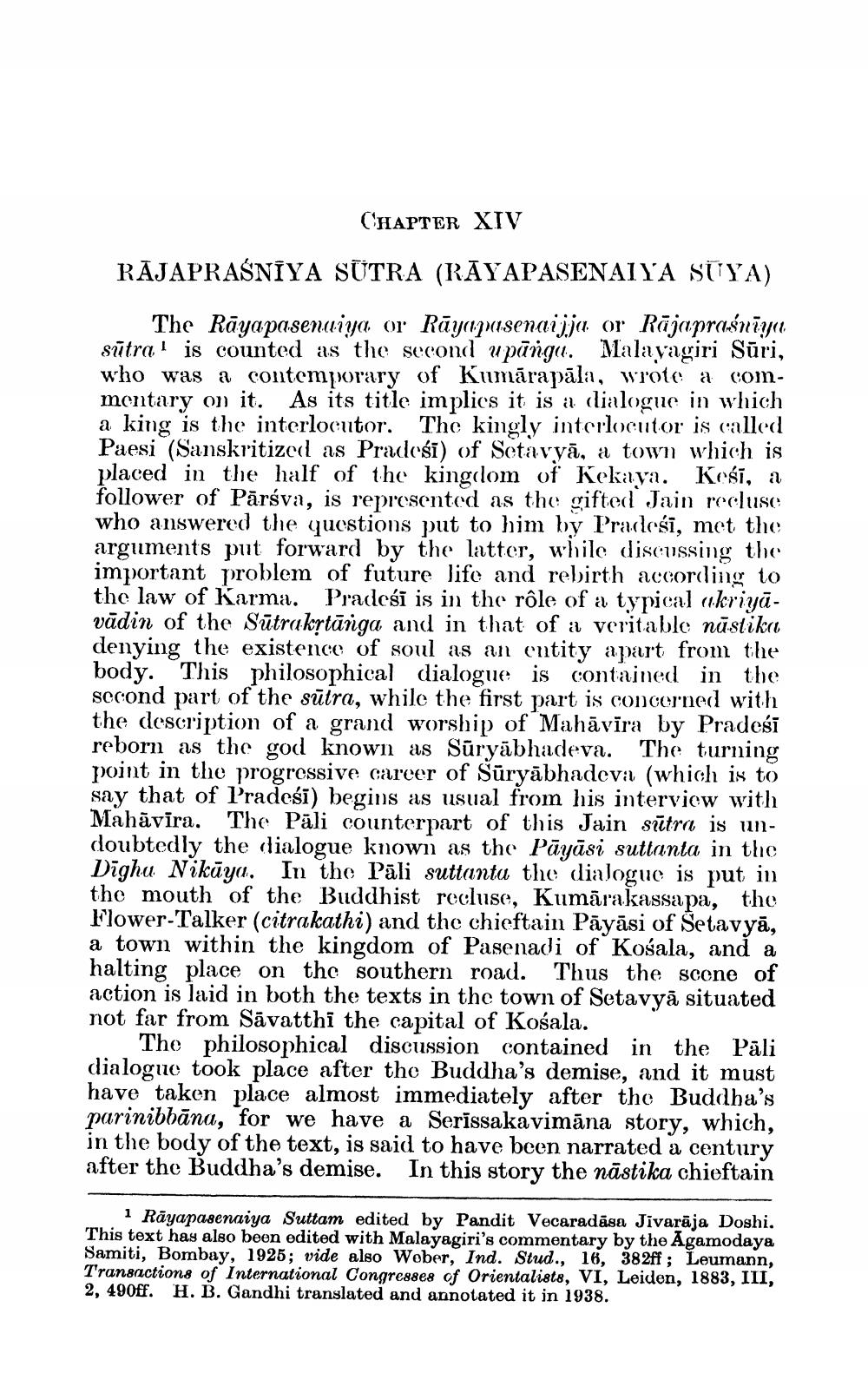________________
CHAPTER XIV
RAJAPRAŚNIYA SÜTRA (RĀYAPASENAIYA SÜYA)
The Rāyapasenuiya or Rāyapusenaijja or Rāja praśnīya. sūtra 1 is counted as the second u pāngu. Malayagiri Sūri, who was a contemporary of Kumārapāla, wrote a commontary on it. As its title implies it is al dialogue in which a king is the interlocutor. The kingly interlocutor is called
tas Pradesi) of Setavyā, a town which is placed in the half of the kingdom of Kekaya. Kosi, a follower of Pārsva, is represented as the gifted Jain recluse who answered the questions put to him by Pradesī, met the irguments put forward by the latter, while discussing the important problem of future life and rebirth according to the law of Karma. Pradeśī is in the role of a typical (kriyā. vādin of the Sūtrakrtānga and in that of a veritable năstika denying the existence of soul as an entity apart from the body. This philosophical dialogue is contained in the second part of the sūtra, while the first part is concerned with the description of a grand worship of Mahāvīra by Pradesi reborn as the god known as Sūryābhadeva. The turning point in the progressive career of Sūryābhadevil (which is to say that of Pradesi) begins as usual from his interview with Mahavira. The Pāli counterpart of this Jain sutra is undoubtedly the dialogue known as the Pāyāsi suttanta in the Dīghu Nikāya. In the Pāli suttanto the dialogue is put in the mouth of the Buddhist recluse, Kumārakassapa, the Flower-Talker (citrakathi) and the chieftain Pāyāsi of Setavyā, a town within the kingdom of Pasenadi of Kosala, and a halting place on the southern road. Thus the scene of action is laid in both the texts in the town of Setavyā situated not far from Sāvatthi the capital of Kosala.
The philosophical discussion contained in the Pāli dialogue took place after the Buddha's demise, and it must have taken place almost immediately after the Buddha's parinibbāna, for we have a Serīssakavimāna story, which, in the body of the text, is said to have been narrated a century after the Buddha's demise. In this story the nästika chieftain
i Rāyapasenaiya Suttam edited by Pandit Vecaradāsa Jivarāja Doshi. This text has also been edited with Malayagiri's commentary by the Agamodaya Samiti, Bombay, 1925; vide also Weber, Ind. Stud., 16, 382ff; Leumann, Transactions of International Congresses of Orientalists, VI, Leiden, 1883, III, 2, 490ff. H. B. Gandhi translated and annotated it in 1938.




